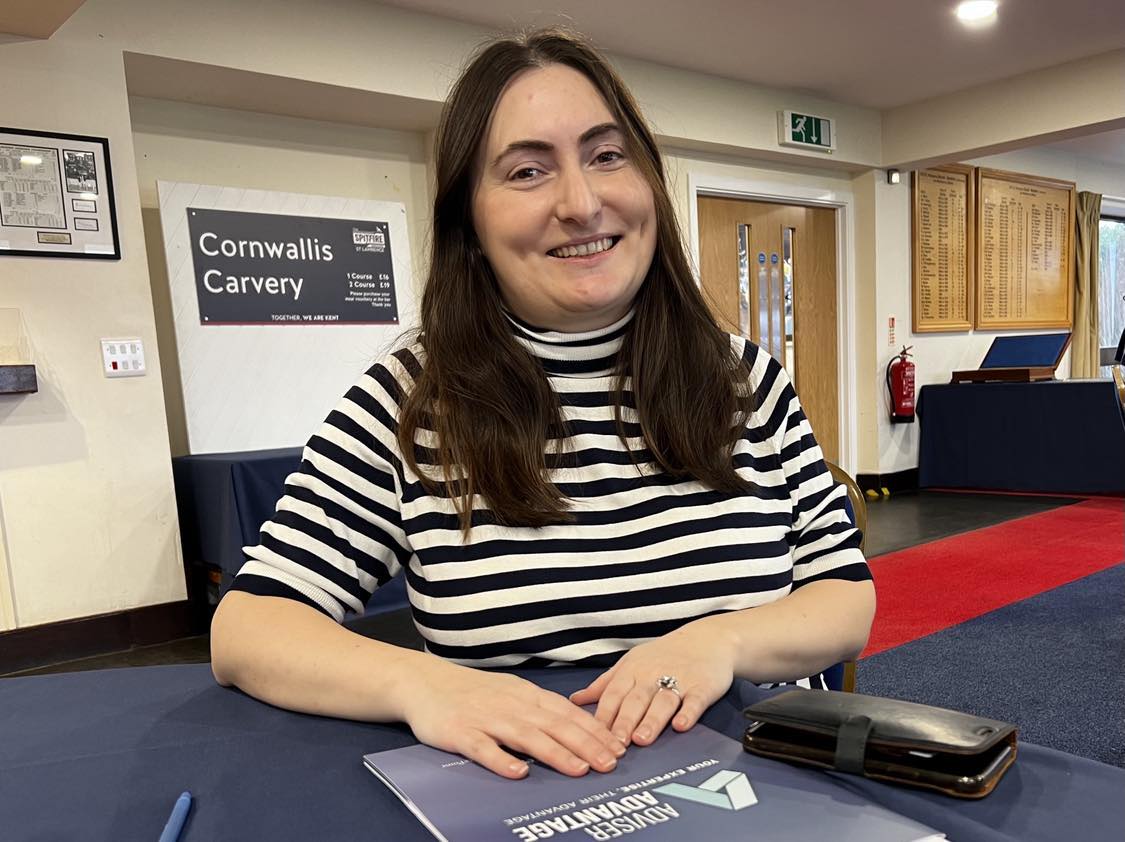
Irina is one of our newer club members – and as she works as a financial advisor the topic was right up her street.*
Irina started by showing us a slide of the average retirement income needed to live to a comfortable, moderate or basic living standard for a single person or a couple. For example, based on figures from 2021 it’s estimated the average retirement income to live to a comfortable living standard as a single person is £34,300 and for a couple £54,500. For a basic living standard, the figures are £12,800 (single) and £19,900 (couple). “It’s “harder as a single person” said Irina.
Next she shared a chart showing how we are now living for longer than in the past. This fact in turn is putting pressure on the National Insurance and pensions systems. Currently, average life expectancy is around 80.7 years (this has dropped recently due to Covid-19) – and quite a few people live to 100!
There are a number of costs that one has to consider in retirement. Apart from day-to-day expenses, one potential cost is that of medical treatment; Irina showed a chart of typical costs for a hip or knee replacement if not covered by the NHS. Another potential cost is house adaptation – the average cost for major adaptations are estimated at around £16,000.
So what can we do? We need to think about sources of income, said Irina. Aside from private or occupational pensions, there are also a number of these income sources. Again, Irina showed us a useful chart outlining various income sources – such as ISAs. (She pointed out how these are only tax efficient when you’re alive – when you die they become part of your estate.)
Other potential sources of income for retirees include partner’s pensions. annuities, stocks, shares and dividends, the sale of a business, and buy-to-let properties – but she pointed out how people tend to offload properties as they get older as these get harder to manage. Irina also outlined how equity release can be used to cover the costs of care and pointed out how that this is safer now than it used to be (in the days when people found themselves in negative equity).
Irina then went on to talk about a major threat to retirement income: fraud. Types of fraud include investment scams, purchase scams … and even romance scams. The figures were quite alarming!
How might one protect oneself? The first suggestion Irina made was “don’t get greedy!” She pointed out how the highest number of reported scams are so-called “boiler room scams” – claims of “hot stock”! The second point she made was “don’t fall for phone scams!” She reminded us that financial advisers can only communicate with their clients – they are not allowed to cold call. Thirdly, “don’t fall for romance scams”. Apparently £15m is lost on romance scams (which are often rooted in loneliness). Summing up, Irina semi-joked: “don’t engage with cold callers and be careful with who you fall in love!”
Irina highlighted how we should all do “estate planning” – no matter how small our estate. She reminded us all that when a loved one dies the close family are left with grief and paperwork, which is eased if estate planning has already taken place. Key to this is making a will – which needs to be signed and witnessed by someone who will not inherit. She suggested making a will with proper legal advice – and also talking to loved ones in order to avoid probate disputes. Family members and even colleagues can get involved in such disputes. (Current figures are quite shocking on how much goes to contestation). Sometimes disputing parties may suggest the deceased was coerced into signing a will; in such cases people may wish to get a psychiatrist to testify they are sound of mind when making their will.
Irina ended her talk by stating that despite the costs of financial advice “being advised leaves you 20-40% better off” – though she did emphasize we should make sure it’s independent advice as independent advisers don’t get paid by product providers but by clients.
In her final slide Irina gave details of the FCA, suggested we visit the Age UK website for details of latest scams, and visit unbiased.co.uk for details of financial advisers.
The end of Irina’s talk was followed by lots of questions and discussion from the floor. One sober scenario raised was that of a widower left penniless – and unable to buy food – until probate was granted on his partner’s estate.
(*At the start of her talk Irina made clear that she was not giving advice, merely guidance; the financial conduct authority require that advice is only given on a personal basis.)
Picture: Irina, pictured after the talk. Picture credit: Rotary Club of Canterbury.


